Danger in Plain Sight
June 29th, 2020Danger in Plain
Sight
by Burt Weissbourd
on Tour June 1-30, 2020
Synopsis:

It took fourteen years to construct a safe world for her and her son–and only one night for her ex to unravel it.
Celebrated Seattle restaurateur Callie James is more than a little thrown when her ex-husband, French investigative reporter Daniel Odile-Grand, shows up after fourteen years asking for her help. Even more disturbing: as she throws him out, Daniel is deliberately hit by a car, hurled through the front window of her restaurant–broken, bloody and unconscious. He flees from the hospital and breaks into Callie’s apartment, where he passes out. Reluctantly, Callie hides him. When she gets back to her restaurant, two assassins walk in, insisting that she find Daniel for them by tonight or pay the consequences.
Overwhelmed and hopelessly out of her depth, Callie hires the only man she knows who can help her: Cash Logan, her former bartender, a man she had arrested for smuggling ivory through her restaurant two years earlier, and who still hasn’t forgiven her.
The assassins blow up her restaurant. It’s Callie’s nightmare. And the worst is yet to come as she and her unlikely, incompatible ally discover that the most perilous dangers are far closer to home than they’d imagined.
Book Details:
Genre: Thriller
Published by: Blue City Press
Publication Date: September 8th 2020
Number of Pages: 224
ISBN: 1733438211 (ISBN13: 9781733438216)
Series: A Callie James Thriller, 1
Purchase Links: Amazon | Barnes & Noble | Goodreads
ISLAND BREEZES
WOW! This book has it all. Adrenalin rush, very interesting characters, intrigue, smuggling, the thrill of the chase (and being chased). It has romance, ugly creatures and of course, danger. Lots of danger.
I really don’t want to get into detail here because I’ll probably give away the plot. Just know that I really didn’t want this book to end. Four or five days after reading it I still can’t get it out of my head.
Thank you, Mr. Weissbourd. Please give us many more Callie and Cash adventures. I’m so happy that Callie figured out she has a backbone to go along with her intelligence.
***Book provided without charge by PICT.***
Read an excerpt:
It was 1:15 a.m. when Kelly and Gray returned. They must have been watching, because they came in as the last patron left. Will showed them to the bar, where Callie was waiting at her table. They sat facing her, different suits this time. Gray wore a thin gold square-link chain around his neck and a matching gold earring—stylish and expensive. Kelly wore a similar gold necklace with a floating diamond solitaire pendant. As Will was asking where their suits had been made, Callie interrupted. “A drink?”
“Another time,” Gray said, all business now. “Have you found Daniel Odile-Grand?”
“No, as I said before, I have no idea where he is.”
“That’s unacceptable,” he said matter-of-factly. He turned to his partner, who nodded, regretfully smiling her agreement.
Callie was prepared. Cash had told her to hit her “ice mode” button—a phrase he’d coined for her chilliness when irritated—at any sign of trouble. He’d recognize that and take it from there. “I beg your pardon?” she replied, classic subzero. She sipped her tepid San Pellegrino with lime.
“As I explained, urgent matters are at stake.” Gray waved his hand to include the dining room downstairs. “I’m told this fine restaurant is underinsured.”
“Yo, Callie.” Cash had materialized behind her, carrying chips and guacamole for the table. “I thought you said we were well insured.”
“We are, in fact, well insured,” she agreed.
Cash leaned in. His physical presence didn’t seem to faze these people. “So we don’t need insurance, then, we’re fine,” he pointed out.
Gray leaned in, too, measuring Cash, finding him wanting. “Listen carefully, cowboy, this is not your concern.” He said it slowly, advising a dim-witted child.
Kelly shook her head and spoke for the first time. “No, surely not.”
Cash’s eyes locked onto Gray’s. “Then this is your unlucky day, pardner. From now on, to get to the lady, you go through me.” He flashed a shit-eating grin. “Did you call me Cowboy?”
Gray grinned ever so slightly. Kelly smiled, picture perfect.
“Cowboy?” Cash repeated, frowning now as he emptied the bowl of guacamole on Gray’s cream-colored silk suit.
Gray was up, going for his gun. He fell to the floor, writhing, when Andre planted his metal prosthetic in the hit man’s groin. Cash already had Kelly’s arms pinned at her sides. Andre took her gun from its shoulder holster and trained it on Gray, who was on the floor, covered with guacamole.
“Let this go,” Cash told Gray. “You don’t want a war. Not with me.”
“Nice suit,” Andre added, and lifted Gray’s gold necklace with the black metal toe of his prosthetic leg. “Love the bling.”
More from Danger in Plain Sight
Cash closed his eyes. He had to do something to divert his mind from these horrific insects. He turned away, stretched his sore arms, flexed his tense back, focusing on Callie. Callie James . . . Okay, it was working. Picturing her face, the corners of his mouth turned up and his spirits soared.
Callie James . . . Why did he feel so wholly in love with her?
He stood, arms extended behind him, as he considered his on-again, off-again history with women.
Women found him attractive, and he’d been with many of them. His relationships, however, rarely lasted as long as he expected. There was some part of himself that he held back, and women sensed this and eventually moved on or asked for more of a commitment than he could make. Over time, he realized that it wasn’t a part — like a piece — but rather some portion of his unusual intensity. He understood that he was very accepting of other people and only offered as much as a woman looked for — some essential emotional minimum — to sustain the relationship. It wasn’t a conscious decision. It was a strong, keenly sensitive person’s way of protecting a partner from unwanted, possibly unsettling intensity. It’s who he was. Everything that he did, he did well but sparingly. So in some way he didn’t understand, he was choosing women who were less intense than he was.
Callie was the first woman he’d ever been with who demanded one hundred percent at all times. She was relentless, and even when she wasn’t aware of it, every bit as intense as he was. He didn’t hold anything back with her — yet she always wanted an explanation, an elaboration, an argument, or an answer to a difficult question. She’d never idealized him, that’s for sure. And he never pretended with her. He couldn’t put his finger on it, but the out-of-the-blue way this had happened between them, the strength of it, was something entirely new for him. Did he trust it? Yes, unequivocally. Did he know why? Yes, unequivocally again — it was because Callie James could never be untrue to herself.
Cash sat down, and turning back, he watched the horrible insects squirming in the jar.
No, he couldn’t lose her. Not now.
More from Danger in Plain Sight
He opened the back door and then led Christy up the stairs to apartment 2D. Will opened the apartment door, held it for her. Christy came through the door into the living room. Will closed the door behind her.
“Christy,” Callie called from where she’d been standing behind the door.
When Christy turned, confused, Callie whispered, “You miserable bitch,” and she fired two barbed, dart-like electrodes from her Taser into Christy’s chest. The electrodes created a circuit in the body, essentially hijacking the central nervous system, causing neuromuscular incapacitation.
Christy fell to the floor, writhing in uncontrollable muscle spasms. When the writhing stopped and she’d curled into the fetal position, Callie and Will cuffed her hands behind her back.
When they were able to get her on her feet, Callie said, “We’re trading you for Cash Logan and Amjad Hasim.”
“What are you talking about?”
Callie slapped her, as hard as she was able. The blow tore Christy’s lower lip, drawing blood, and bruised her cheek. Callie hadn’t planned to do that—it was her second time, and she’d never hit anyone nearly so hard in her life—but red-hot rage was coursing through her veins. She was trembling, though her ever-present anxiety had receded, and she sure as hell didn’t feel helpless.
“Are you crazy?” Christy cried out.
“Don’t even try that. I know what you and Avi have done—to Daniel, to my restaurant, to my friend Doc. You almost killed us all on the boat. And now you have Cash, damn you!”
Christy’s face changed; she got it—Callie had somehow put it together. “You low-life skanky cunt, I’ll kill you myself.” Christy spit in Callie’s face.
Callie slapped her again, a fierce crack, astonished, yet again, by the rage she felt welling inside. And in that moment, she understood that her usual internal restraints—her rules and regulations—were no longer in place. It was as if an anvil had been cut loose from around her neck.
Blood dripped from Christy’s lip, her left eye was partially closed, and tears streamed down her face.
Callie stepped closer. “If anything happens to Cash, if you hurt him again, I’ll kill you, Christy Ben-Meyer. I swear that on my son’s life.”
Five minutes later Christy was standing on a stool in the center of the room. Her hands were cuffed behind her back. Her feet were bound. Her mouth was covered with duct tape. There was a noose around her neck that was tightly tied off to the pair of sturdy eyehooks that Will had screwed into the ceiling beam earlier. Christy’s head was tilted back and up; the rope was that tight. Another rope was tied to the leg of the stool. If the stool were pulled out from under Christy’s feet, she would hang.
Callie held a handgun to Christy’s kneecap.
Will was shooting a video with Callie’s iPhone.
Callie spoke to the camera. “Avi Ben-Meyer, I promise you that I will shoot out Christy’s left kneecap in fifteen minutes if you haven’t arranged the exchange with Itzac by then. In thirty minutes, I’ll shoot out her other kneecap and hang her. Believe me on this — if Cash Logan is hurt in any way, I’ll torture her without mercy before she dies.” Callie nodded, done. She walked to a corner of the room, fighting for breath. Dear God! What had she just said? Torture Christy? Damn it, if they hurt Cash . . . She gasped — she’d never even known that she could have feelings like that.
Will placed a calming hand on her back, and he gave her the phone. Callie noted the time, then sent the video to Itzac.
More from Danger in Plain Sight
The martinis arrived, each one with an extra inch of refill in a glass tumbler. “The angel’s share,” Cash explained. He raised his drink, a toast. “To you, Callie, to what you could become.”
She clicked his glass with hers. “I’m not sure what you mean.”
“You have a shot at extraordinary.”
“You think so?”
“Possibly. But it’s an entirely different kind of extraordinary than turning-me-over-to-the-cops-for-smuggling-erotic-netsuke-into-your-restaurant extraordinary.”
“I deserve that. Jesus what an unforgiving, righteous gal I was.” She raised a palm. “Your words. And you were right. I’m sorry.” She touched his arm. “I was mean-spirited, foolish—just plain wrong — and I’ll always regret that.”
“Suppose we let that go.” Cash raised his glass again.
She touched her glass to his. “Thank you.”
“Speaking of regrets, honestly, I never anticipated that this past week would be so difficult—the anxiety, hiding Lew, the mace, the damage to your restaurant, the explosives on the boat . . . It was especially hard to lose Doc . . .” He let it drift.
She nodded, found his eyes. “I misjudged you early on . . . Conventional thinking sometimes blinds me—how you look, how you dress, what your job is. Long story short, you’re not at all what you seem. I listened carefully to you with Detective Samter today. You’re so smart, so able in the world. And in your way, though you’d never admit it, you try to get it right. Yes, you present whatever you’re proposing as practical, a calculated, opportunistic thing. What I’m learning, though, is that with you that’s also, as you see it—after carefully weighing pros and cons—the best for all involved. Or as I would say it, theright thing. How you get there is often confusing to me, but you do get there, way ahead of me, and, well, I admire you.”
“Thank you . . . That’s a two-way deal.” Cash watched her, surprised by her expressiveness. “Truthfully, this past week, I underestimated you. You’ve been right there, as hard as that must have been for you. You kept defying my expectations. Just when I was ready to give up on you, you did the smart thing, the hard thing, under protest, but you did it. And now, I’m watching you in the eye of a serious storm, just when I’d expect you to cave in, fall apart. But no, you manage. You even stand tall. Callie, you have a fine, strong heart.”
She smiled. “I’m a restaurateur. I never knew what to do outside my restaurant. I was always afraid.”
“I didn’t know that.”
“It took a lot of work and a huge amount of energy to accomplish that deception. I mean you can’t imagine what it was like for me to find you — ask for your help — at the Dragon. It was all I could do to look at you, to keep even a semblance of composure.”
“And that’s changing?”
“Yes, I think so. I hope so.”
“How did this happen?”
“It’s you, Terry.” She looked at him, eyes serious. “In your tenacious, patient way, you dragged me—kicking and screaming—out into the world, step by baby step, and though it’s every bit as frightening and even more unsettling than I imagined it, I’m okay with it. Yeah, I’m even getting my sea legs.”
“Bravo, then, Callie James. To both of us.”
She raised her glass. They toasted silently.
“Truthfully, Cash, at times I even like it out here.”
“Well, it suits you.” Cash watched her smile.
“I even like talking with you . . . And I was never a talker.”
“I’m guessing we have some great, contentious conversations ahead of us.”
“I like the idea of that.”
“Likewise.”
“Cash and Frosty, tête-à-tête.”
He took her small, delicate hands in his big, busted-up mitts.
Their kiss was tender, sweet, Cash thought. After, there were tears in Callie’s eyes.
***
Excerpt from Danger in Plain Sight by Burt Weissbourd. Copyright 2020 by Burt Weissbourd. Reproduced with permission from Burt Weissbourd. All rights reserved.
Author Bio:
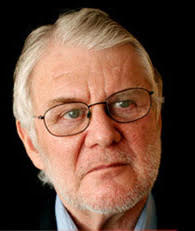
Burt Weissbourd is a novelist and former screenwriter and producer of feature films. He was born in 1949 and graduated cum laude from Yale University, with honors in psychology. His book, Danger in Plain Sight, published on May 15th 2020, is the first book in his new Callie James thriller series. His earlier books include Inside Passage, Teaser, Minos, and In Velvet, all of which will be reissued in Fall 2020.
Catch Up With Burt Weissbourd On:
BurtWeissbourd.com, Goodreads, BookBub, Instagram, Twitter, & Facebook!
Tour Participants:
Visit these other great hosts on this tour for more great reviews, interviews, guest posts, and giveaways!
Get More Great Reads at Partners In Crime Virtual Book Tours
Angels at the Crossroads
June 29th, 2020
Angels at the Crossroads, one man’s inspirational journey from wrongdoing to redemption.
Angels at the Crossroads is the life story and testimony of my friend, Jerry Shepherd. Jerry is a talented tenor singer and he and my husband, who sings bass, both once sang with the Patriot Quartet. As we traveled around to Southern Gospel singings together, Jerry shared bits of his story and I felt the Lord pushing me to write down Jerry’s story. The result was Angels at the Crossroads, based on Jerry’s remarkable testimony.
Jerry is proof the Lord never gives up on any of us no matter what a mess we make of our lives or how far we try to run away from his love. The Lord is always there with us, loving us and encouraging us through providential circumstances and people to get back on the right roads in life. That’s what happened with Jerry.
ISLAND BREEZES
Jerry had a lot of them. Both angels and crossroads.
Jerry was on the road downward as he tried to escape from his crime. But he was caught and there was no longer a hope of escape.
Thank God, he had angels even in prison as he faced the rest of his life behind bars. He really messed up his life at a young age, but he did allow the angels at the many prison crossroads to guide him.
I’ve read many of Ms Gabhart’s books of fiction. She made Jerry’s life read like fiction. A smooth story that kept me engaged through it’s entirety.
Thank you Jerry and Ann for sharing this touching story with us.
***Book received from the author at no charge.***

Ann H. Gabhart caught the writing bug at the age of ten and has been writing ever since. An award winning author, she’s published many books for both adults and young adults. Her books cover several genres from historical to small town family stories to cozy mysteries (mysteries published with author name A.H. Gabhart). Her ideas are sparked by events in Kentucky history and by experiences in her own family. Her first Shaker novel, The Outsider, was a finalist for the ECPA Christian Fiction Book of the Year. Love Comes Home won the Selah Book of the Year award, and These Healing Hills was the Faith, Hope & Love Readers’ Choice Women’s Fiction Book of the Year.
Ann lives on a Kentucky farm not far from where she was born. She and her husband have three children and nine grandchildren. Ann enjoys hiking on her farm with her grandkids and her dogs, Frankie and Marley. See more about her books at www.annhgabhart.com.
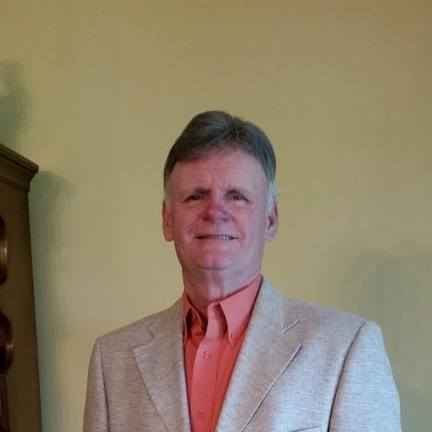
A PERSONAL NOTE FROM JERRY SHEPHERD…
For many years while telling my life story after I was released from prison, people would come up to me and tell me that I needed to have my story put into a book. I thought about it every now and then over the years, but then I would back off when I saw everything involved in getting a book together and getting it published. Angels In The Crossroads Well, it was too much for this old county farm boy to deal with, so things would cool off real fast and the thought of a book, let’s just say, would be put on the back burner. I would give God another one of my excuses and leave it at that.
After I had been singing with the Patriot Quartet for four years, I came to another one of those crossroads that always seem to pop up in my life. With many hours and many miles on my body starting to take a toll on my health, I had to make a decision about continuing with the quartet or going into solo ministry to once again tell my story. Then along came Ann who is married to Darrell Gabhart, the bass singer in the Patriot Quartet. Ann is a writer and she had heard me tell parts of my story. She took an interest. We got together and all of a sudden the big word, book popped up.
God never ceases to amaze me. God always has a plan. God always brings the plan together in His own time. Thanks, Ann, for letting God inspire you to pick up pen and paper and write about my life. I pray this book will touch and bless someone at a crossroad in his or her life.
A Solid Foundation
June 27th, 2020
“Therefore everyone who hears these words of Mine and does them will be like a wise man who built his house upon the rock.
And the rains fell, and the floods came, and the winds blew and beat against that house; and yet it did not fall, for its foundation had been built on the rock.
Matthew 7:24, 25
Guidance
June 20th, 2020
You guide me with Your counsel, and afterward You take me into glory.
Psalm 73:24
Your word is a lamp unto my feet, and a light unto my path.
Psalm 119:105
In all your ways acknowledge Him, and He will make your paths straight.
Proverbs 3:6
Broken Roads
June 19th, 2020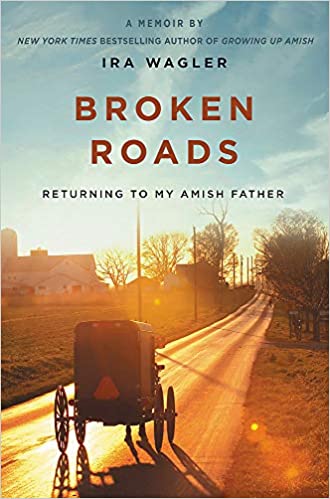
In this insightful memoir, the New York Times bestselling author of Growing Up Amish tries to reconcile his father, family, and heritage after leaving his faith behind.
In Broken Roads, Ira Wagler uses his singular voice to unapologetically, but compassionately, illuminate the inner world of the Amish community through his story of life after leaving, what feels like his inevitable return to his Amish father, and how they might mend the relationship between them before it’s too late.
Through difficult reunions, struggles confronted, and betrayals revisited, Wagler explores burning questions of faith and identity shared by millions, whether Amish or not. Readers may recognize themselves along these paths with Wagler, as he grapples with choices, faith, family, the past, and the future.
ISLAND BREEZES
Once again I travel the roads with Ira Wagler. This can be a stand alone read, but it’s better if you read Growing Up Amish first. This is the first road I traveled with Mr. Wagler.
Ira did travel many broken roads, but he got to where he needed to be. This story could only be told by someone with inside knowledge of the Amish community.
Ira is a survivor. I must admit that a few times I was teary eyed while reading this book.
I’m hoping he has another book waiting for him to write it. I’ve enjoyed reading about the roads he has traveled. Thank you, Mr. Wagler.
***Book provided without charge by Canaan of the Hachette Book Group.***

Go here to read more about Mr. Wagler.
Run the Race
June 13th, 2020
Therefore, since we have such a great cloud of witnesses surrounding us, let us also get rid of every weight and entangling sin. Let us run with endurance the race set before us,
focusing on Yeshua, the initiator and perfecter of faith. For the joy set before Him, He endured the cross, disregarding its shame; and he has taken His seat at the right hand of the throne of God.
Hebrews 12:1,2
Yeshua – Hebrew for Jesus
The Pinebox Vendetta
June 9th, 2020Synopsis:

From the author of The Winner Maker and Blackquest 40 comes The Pinebox Vendetta: a genre-bending thriller that combines a love story, cold-case murder mystery, and political blood feud — told over the course of a single breathless weekend.
The Gallaghers and Pruitts have dominated the American political landscape dating back to Revolutionary times. The Yale University class of 1996 had one of each, and as the twenty-year reunion approaches, the families are on a collision course.
Owen Gallagher is coasting to the Democratic nomination for president.
Rock Pruitt — the brash maverick whose career was derailed two decades ago by his association to a tragic death — is back, ready to reclaim the mantle of clan leader.
And fatefully in between lies Samantha Lessing. Sam arrives at reunion weekend lugging a rotten marriage, dumb hope, and a portable audio recorder she’ll use for a public radio-style documentary on the Pruitt-Gallagher rivalry — widely known as the pinebox vendetta.
What Sam uncovers will thrust her into the middle of the ancient feud, upending presidential politics and changing the trajectory of one clan forever.
The Pinebox Vendetta is the first entry in the Pruitt-Gallagher saga: a series that promises cutthroat plots, power grabs, and unforgettable characters stretched to their very limits by the same ideological forces that roil America today.
Book Details:
Genre: Thriller
Published by: Jeff Bond Books
Publication Date: February 19th 2020
Number of Pages: 264
ISBN: 1732255253 (ISBN13: 9781732255258)
Series: Pruitt-Gallagher Saga, #1
Purchase Links: Amazon | Barnes & Noble | Goodreads
ISLAND BREEZES
Just like the Hatfields and McCoys. A family feud can go on for decades and generations. So, too, with the Pruitts and the Gallaghers.
Along the way many people are hurt and some even die. But the pinebox vendetta lives on.
Just what is this vendetta about? Does anybody even know or is it just something to feud about?
Thank you, Mr. Bond. I’m looking forward to your next book.
***Book received without charge from PICT.***
Read an excerpt:
1
Jamie Gallagher stood beside the pirate at the skiff’s rail, the African sea thick on his skin. Neither man could see the other in the moonless night, but Jamie smelled the khat the Somali never stopped chewing—sweetly sharp, a scent that made Jamie feel part cleansed and part crazed.
“The money is ready,” said the pirate named Abdi. “My men have packed the briefcase.”
“Wanaagsan.” Jamie ducked his head in gratitude. “You believe the general will accept a briefcase?”
“This is the usual way, yes. It will be checked for explosives with X-ray and IMS swabs.”
“Of course.”
“Also, the general will insist on verifying the amount before the release occurs.”
“His men are going to count ten million dollars?” Jamie asked.
The Somali spat khat leaves into the sea. “He has machines. The machines check by weight.”
Jamie exhaled, pushing his own breath into the hot, still air. The money would weigh out.
The money wasn’t the trick.
Abdi continued, “Once the amount is verified, the general will call his people in the jungle by satphone, and they will free your journalist.”
“Immediately? I’ll need confirmation from HD before we leave the yacht.”
“That is the arrangement.”
Jamie mopped his brow. Acting wasn’t his strength, and he hoped his insistence on this procedural point was convincing. In fact, Humanitarian Dialogue (HD) knew nothing about tomorrow. There would be no representative at the hand-off spot, and the French journalist—whose reporting on minority suffrage truly had opened the world’s eyes—would not be freed.
This was a regret. But Jamie Gallagher had lived with worse.
He said, “I’ll be X-rayed, too?”
“Yes.”
“Strip-searched?”
“At a minimum. You should expect a body cavity search.”
“Fine.” In his years advocating for peace and public health around sub-Saharan Africa, Jamie had had his cheeks probed, his neck magnetically combed, and the arches of his feet flayed. “I suppose the general’s in no position to be trusting.”
The pirate took a while to respond. Was he eyeing Jamie in the dark? Signaling to his men back on the mothership? Jamie’s statement had been obvious and shouldn’t have invoked offense.
Since joining the pirates at Merca, a white beach paradise down the coast from Mogadishu, Jamie had detected hostility—even after paying their exorbitant convoy fee. Abdi himself had been civil enough, but his three young lieutenants, after pointedly using their left hands to shake Jamie’s, had glared at him with undisguised contempt.
He understood this. A westerner waltzes onto their ship with unimaginable stores of cash—cash that, in a matter of hours, will bring them into contact with the most wanted war criminal on the planet. Naturally, they resented him.
He was what, five years older than them? With his bandanna and dishwater-blond hair?
Abdi said, “This is a great risk for us. We have earned the general’s esteem. We do not wish to squander it.”
Jamie heard the clench in the man’s jaw. “I assure you, I will comply with every procedure he or you tell me to follow.”
General Mahad and these Somali pirates fought on the same side of many issues. Both wanted the ruling Muslims out of Puntland. They didn’t care that the Muslims had remade the conflict-ravaged region into a prosperous enclave, introducing compulsory education and a foodstuff-based living wage.
For the pirates, the problem was their strict, Islam-centric brand of law and order, which had made the coastal waters harder to pillage.
General Mahad’s beef was simple: the Muslims had replaced him in power.
He’d ruled Puntland for a decade, enriching himself and his cronies using any resource available—khat, guns, people. When word of his atrocities leaked, international pressure mounted for a free election. The general agreed after a period of stonewalling, believing he could manipulate the results. When Al Jama-ah won anyway, the general stole all he could in the weeks before yielding control.
According to a local guide Jamie trusted, the general toured polling stations his last day with a machete, taking three fingers from each precinct leader.
“If I lose next time,” he told them, “you lose the rest.”
Though he retained a few loyalist strongholds like the one holding the French journalist, General Mahad himself lived on a yacht, moving constantly to evade capture. The Hague had convicted him last year in absentia.
Now Jamie asked, “Who’ll be coming aboard with me?”
“Me and Josef,” Abdi said. “We are known to the general.”
“Will you be armed?”
“No. He will search us, too.”
Jamie shuffled in place, the skiff feeling suddenly unsteady beneath him. “I—er, I hope it’ll be okay that I bring a gift. Akpeteshie. I was told it is the general’s favorite liquor?”
The pirate groaned pleasurably. “Akpeteshie, yes.”
“I thought we might share a drink as a token of good faith.”
“The bottle is factory-sealed?”
“Yes.”
“The general will like this. The general believes in courtesy.”
Several retorts came to mind at the ludicrous idea this butcher had any claim on civility, but Jamie swallowed them. He removed a pair of night-vision goggles from his rucksack. Before looking himself, he offered them to Abdi. Abdi waved them off as though the technology were frivolous.
Jamie scanned the horizon, right to left, left to right. The skiff’s sway seemed to increase. The eye cups stuck to his sweaty forehead.
The smell of khat, which hadn’t bothered him before, grated now, like sugar grit needling into his nose and eardrums. He felt the pressure of this place keenly. Every actor—man, woman, or child—who entered this stretch of ocean would be girded to fight. They must be. Choice never came into it.
A shape appeared on the horizon. Jamie thumbed his focus wheel until red blurs resolved to running lights.
“The general,” Abdi said.
Adrenaline jolted through Jamie. Here was a ghost vessel—a vessel many militaries of the world would board on sight, and one the United States wouldn’t think twice about blasting to smithereens with a drone strike.
The yacht grew larger in the greenish display. Jamie screwed on a bulky magnifier lens and was able to make out guards on the gunwale, ambling, AK-47s on their shoulders. The yacht was perhaps twenty meters. Several figures were sprawled out on deck, sleeping in the open for the heat.
Jamie raised the goggles, thinking to find the general on the bridge. The cockpit windows were smoked—opaque from outside and surely bulletproof.
He panned back down. The craft made a leeward turn, and he glimpsed new figures at the base of the pilothouse. These were prone like the others but smaller—a dozen in a line, little pulled-apart commas. Most of them were still, but one squirmed restlessly.
Children.
Jamie’s stomach shrank to a cold fist.
#
He barely slept. Long after rowing back to the mothership and helping Abdi loosely tie up the skiff, and bedding down in the holds beside crates of ammunition and rocket-propelled grenades, Jamie lay awake thinking of those children.
He’d known the general had kids, twenty or thirty that he acknowledged. And it shouldn’t have been surprising such a monster would keep family members near, in the cross-hairs of danger. Still, the concrete knowledge of these innocents shook Jamie. His moral clarity waned, like a tower of blocks losing its crosspiece.
How will the general’s children move on? What if they fall into the arms of the pirates or the next warlord up?
From here, it was no leap at all to obsess about the French journalist. When the exchange was revealed as phony, would the general’s men execute her on the spot? They would blame her, despite the fact that she had played no role whatsoever in the ruse.
Renée Auteuil had been raised by a jobless father in Roubaix, the post-industrial husk of a city. She’d worked sixty-hour weeks as a line cook to support them. She’d defied dictators on three continents to achieve the eminence and audience that had prompted General Mahad to snatch her last spring.
Now Jamie was putting her in jeopardy, and for what?
So that he could feel better about himself? So he could feel absolved?
Jamie had chosen Puntland precisely because it was neutral territory in the feud between his family, the Gallaghers, and their conservative arch-enemies, the Pruitts.
The two clans had been fighting for nearly three centuries—and while there was hardly a facet of American political, corporate, or philanthropic life their battles hadn’t touched, neither family had much connection to Puntland. As president, Jonathan Pruitt hadn’t carried out any significant dealings with the territory during his term. (His only term, thankfully.) The Gallaghers facilitated relief missions all over Africa, but nothing specially in Puntland.
Jamie’s action tomorrow wouldn’t be interpreted as having grown out of the feud, or impacted the feud, or given the Gallaghers some edge in the next midterm elections.
This was separate. This was good, a thing nobody could spin or debate.
That had been the plan, at least.
Now doubts roared in Jamie’s mind. He dug at the roots of his hair, flopping about the damp, creaking boards. The Somalis snored in the adjacent room. Their arsenal reeked of grease and sulfur. Jamie crunched his eyes and pulled his rucksack, which he’d been toting around since freshman year at Yale, down over his head.
The thoughts still came, and the guilt.
His emotions spiraled and sickened and fought, and finally came to a head. He growled, disgusted by himself, then tore through his rucksack for the shoe that contained, wedged up in the toes, a newsprint photo of a mass grave discovered in northeast Puntland.
By penlight, he stared at the image. He seared it into his brain. The open trench of dusted gray bodies. The overlapping femurs. The fleshless faces.
The photo was merely one of dozens. Jamie knew the general was well-positioned to continue the slaughter once the collective international eye moved along.
“That’s it,” he whispered aloud. “Not one more thought.”
#
The meeting was to take place twenty minutes after sunrise. Jamie woke, having finally fallen asleep around four a.m., to the Somalis chatting in their native tongue over pieces of flatbread. He dragged himself aboveboard, feeling at once languid and jittery.
“Bread?” Abdi offered, tearing a piece from a slab.
“Thanks, no.” Jamie reached into his rucksack instead for a piece of biltong, the wildebeest jerky he’d grown fond of. “Has the general been about?”
“Yes, Josef saw him. The hat.” Abdi made a sifting gesture above his head to indicate the general’s beret.
The day was already scorching, the sky’s blue brilliance broken only by the boiling disk of the sun. The general’s yacht rocked softly in the west, appearing quite large now, its bow sleek and spear-like.
“They’re within gun range,” Jamie observed.
“Oh yes. We are in their scopes.”
As if to prove the point, Abdi raised a hand in the yacht’s direction and laughed. Nobody joined him.
The pirate named Josef, taller and broader in the chest than Abdi, loaded the ten-million-dollar briefcase into the first of three skiffs. Jamie stepped in after, fitting his rucksack into the hull—careful of the Akpeteshie inside—and tying back his hair.
Abdi took a minute instructing the two men staying back on the mothership. Was he arranging a distress signal? Telling them what to do if shots were fired?
Coordinating a double-cross?
There was no use worrying. Jamie had placed himself between dangerous people, but dangerous people performed the same calculations benign ones did. The pirates would keep up their end so long as the benefits remained clear: not only cash, but stronger ties with the general and the establishment of a new back-channel to the powerful Gallaghers.
The skiff loaded, Adbi yanked the outboard motor’s cord. The engine sputtered alive and settled to a rumbling purr. Josef untied them, flashing a grim thumbs-up to the men staying behind.
They charted a course for the general’s yacht. The sea felt choppier on the smaller craft, which didn’t bother Jamie—a lifelong boater and varsity swimmer in college—but did compel him to pull the rucksack protectively into his lap. If the Akpeteshie somehow ruptured against the hull, the mission would be lost.
As they neared the general’s yacht, the faces of his guards became visible—wary, textured faces. The carry-straps of AK-47s sawed their necks.
Abdi cut the motor and drifted in.
A section of railing was unclipped, and a ramp extended from the yacht’s stern. After helping Josef tie up, Jamie slipped the rucksack onto his back and boarded. The Somalis trailed him with the briefcase.
“Halkan, ku siin!” said one of the general’s men.
Abdi shook his head forcefully at the request—to hand over the briefcase. The guards backpedaled, their formation hemming Jamie and the pirates into a corner of the aft deck. Abdi and Josef walked with their bodies shielding the case as if it contained plutonium.
With these uneasy field positions established, the general’s men conferred briefly and parted to form an aisle to the pilothouse. General Mahad emerged.
The general wore his full dress uniform: navy blue, epaulets, ribboned medals. He lumbered forward with a mild limp, said to have originated during the Simba rebellion of 1964.
He raised his chin to Abdi, then spoke to Jamie. “Welcome to the one and true seat of Puntland, Mr. Gallagher.”
Jamie felt the man’s deep, scarred voice in his bowels. “That’s none of my concern. I’m here for Renée.”
The general smiled, his lips fat and sly. “How fortunate she is. You are the white knight, eh? Sir Jamie?”
The characterization stung, but Jamie pushed on. “I’ve been in touch with Humanitarian Dialogue—their helicopter is ready. Give me a latitude and longitude for the exchange and let’s get this over.”
“Your friends have the money?”
Every eye on the yacht turned to Abdi, whose knuckles tightened on the briefcase handle.
“Ten million,” Jamie said. “Count it if you like.”
The general crooked a finger at one of his men, who disappeared to the pilothouse. The man returned with a machine resembling a fax with bill-sized trays.
Abdi stepped forward with the briefcase. The man with the counting machine passed a handheld X-ray scanner around the case and swabbed a cloth along each edge.
He started for the pilothouse with the cloth, likely to perform a residue test for explosives, but the general stopped him. Then gestured for Abdi to go ahead.
When Abdi undid the clasp, the lip snapped open—ten million was a squeeze, even with an oversize case—and a few packets spilled out.
The counting began.
Now Jamie reached into his rucksack for the Akpeteshie.
“I’ve heard tell around campfires,” he began, gathering himself, “that you enjoy a certain Ghanaian beverage.”
The general grinned when he saw the bottle, squat, the neck’s glass bowed in the distinctive shape of a baobab tree.
“This is true.”
“Shall we drink together?” Jamie said. “It’s early, but I find a day started well nearly always ends well.”
The general palmed his jaw. There was a risk he would set the gift aside, but Jamie was counting on this subtle challenge to his manhood—in front of his crew, in front of Abdi and Josef. People like the general didn’t back down from such dares.
Jamie thought of his old classmate Rock Pruitt who’d downed a fifth of whiskey disproving a frat brother’s claim that prep-schoolers only drank martinis and smoked reefer.
“I would quite enjoy that,” the general said. “After the bottle is checked.”
Jamie raised a shoulder, feigning indifference as two men seized the Akpeteshie and held it sideways up to the sun, testing its feel in their hands, poking fingernails along the dripped-wax seal.
They would find nothing. Jamie’s sister Charlotte Gallagher, founder of internet-of-things giant SmartWidget and the eighteenth-richest person in the world, owned 45 percent of the local distillery that produced Akpeteshie. She had allowed Jamie to follow this lone bottle through the factory. At the final step, just before corking, he’d poured out 150 milliliters of liquor and replaced it with an equal amount of king cobra venom.
For fifteen months, Jamie had been inoculating himself with increasingly larger doses of the venom. He had started, after discussing the strategy at length with a Sudanese shaman, with a pinprick diluted in a pint of water. Last week, he had managed eight milliliters of venom—the amount a shot from the spiked Akpeteshie would deliver, depending on the pour—and suffered only dizziness, blurred vision, and severe cottonmouth.
When his men were satisfied the bottle was unaltered, the general took a pair of tumblers from the yacht’s fiberglass sideboard.
Tumblers, not shot glasses. Eight ounces at least.
“To finding a middle, eh?” The general poured each tumbler to the brim. “Two parties can start from opposite ends and, with good sense, find a common understanding.”
Jamie’s teeth pulverized each other in the back of his mouth. He’d always found the rhetoric of compromise disingenuous, whether it came from television pundits or the North Carolina Gallaghers exhorting the clan to give ground at the fringes of the abortion debate.
To hear it from the mouth of a man like Mahad? Revolting.
“To the middle,” he spat.
He raised the tumbler to his lips. Calculations whipped around his brain. Eight ounces divided by one point five…
Equaled six times the amount of venom his body had previously endured.
The liquid was amber, almost orange. As the glass tilted, Jamie imagined he saw currents of venom slithering among the palm wine. His fingers trembled. Some sloshed over the side, but not nearly enough.
In his periphery, Jamie became aware of Abdi and Josef arguing with the general’s men. Abdi slapped one empty well of the briefcase. The general’s men shouted. More rushed to the deck from below board.
The general balked at Jamie’s tone. “You do not like my toast. That is your right. You are the guest, so make your own.” He smirked about. “We are democratic here, aren’t we?”
Jamie ignored the low hoots. “To justice.” He regripped his tumbler. “To justice, and fair treatment for all living things.”
The general guffawed, big and toothy. “For ten million, yes. Why in hell not?”
Their eyes locked over the tumblers’ rims. Jamie perceived something in the man’s look, some hustler’s instinct, and knew if he faltered now—even for a moment—the trap would be blown.
Jamie stared into the lethal brew, waited for bright madness to rise, and drank. The Akpeteshie burned his throat. His jaw felt weak and daggers pressed into his eardrums from inside. Still, he kept his head tipped back and drank it all.
The general and several of his men goggled at the feat. When their eyes turned to him, the war criminal downed his, too.
“…no, the release! ” Jamie heard behind him. “No money before release!”
“We will keep it.”
“No, us! We will hold the money.”
A guard wearing ripped denim leveled his rifle at Abdi. Josef stepped forward to push aside the muzzle. Another guard drove the butt of his rifle into Josef’s back, crumpling the pirate.
Jamie didn’t know how long he and the general had. During his inoculation, the symptoms would begin in about a minute, but he’d never ingested this large a dose.
His heartrate zoomed and breath pumped through his chest like air from a bellows—still, this could be the effects of anticipation.
“So, um…the release,” he said, feeling a vague duty toward Abdi. “If you…so I’ll call HD and be sure Renée, er…s’all okay with the money…”
Words were deserting him. The scuffle on deck was intensifying. Josef had recovered to pounce on the man in denim. Abdi was buried in a furious tangle of fists and churning hips.
Jamie didn’t understand the fight. Let them have the money—who cared?
He began to feel disconnected from his body, Abdi and Josef blending into other people he’d known in life, Gallaghers and Pruitts, senators and reporters, grad students and business titans, all fighting without reason, finding joy and enemies, grinding their life into the larger sausage.
The general unleashed a thunderous whistle and raised his hand for calm. The struggle paused. Every eye turned his way. He began to lower his hand but suddenly couldn’t.
His arm convulsed and became some bucking stick-animal beyond his control. His fingers twitched unnaturally. He grasped his throat, staggering back. Froth bubbled in his nostrils.
The man who’d retrieved the money scale from the pilothouse pointed at Jamie.
“What is this?”
Jamie tried answering, but his tongue would not obey, dead and heavy in his mouth. Pain gored his brain. Sweat screamed from his pores, a thousand beads altogether.
This wasn’t the outcome Jamie had wanted, but neither was it wholly unexpected. He thought now of life’s best moments. In Burundi, feeling that boy’s skeletal hand squeeze as he sucked a tab of enriched peanut butter. On the vineyard, fourteen years old, swinging his cousins round and round in celebration after his mother—the senior senator from Connecticut and Democratic National Committee chairperson—had succeeded in her long-shot campaign to retake majority control of the Senate.
Above all, though, he remembered kissing Sam. Seniors on their last night at Yale, about to go conquer the world, standing together in an entryway. Emotions spiked to the heavens. Their mouths came together in the gentlest, deepest touch he’d known before or since.
Samantha Lessing. God, she was it. The life he missed.
Half the general’s men were swarming the Somali pirates while the other half moved on Jamie. There was a gap between the two, but it was closing.
Jamie willed his tongue back into service.
“This was right,” he croaked. “Here, today. This was not a waste.”
And he believed this—dashing across the deck through grasping hands, over the gunwale, into the black ocean.
TEN YEARS LATER
2
Sam slipped out of the WNYC studios at four thirty, waving off cheers of “Have fun!” and “Take me with you!”, hurrying through the lobby, jogging a short block to catch the uptown C. She needed to pick up a daughter and possibly husband in Brooklyn, then be back in Manhattan for the 5:41 p.m. train to New Haven. Reunion check-in closed at eight. If the train arrived on time, she’d make it easy.
If not? If any of the dizzying array of pitfalls inherent in teenagers and public transit popped up? Sam guessed they were sleeping on the street.
Half an hour later, she hiked three flights of stairs with key at the ready. The apartment was unlocked.
“Joss?” she called. “You are packed, yes?”
Her daughter’s door was closed, but guitar chords thwanged through. Sam stepped around French bread pizza and a stack of indie music magazines to pound twice.
“Not telling you what to wear,” she yelled, “but I suggest a dress or dress-like garment for Saturday night.”
The music inside dulled, indicating Sam had been heard. The warning bell had been sounded. She found an oversize duffel bag in the hall closet and tossed in her stuff: toiletries, three-odd outfits for the weekend, Zoom audio recorder.
About outfits: Sam both cared and didn’t care. She was forty-three. Her classmates were forty-three, give or take. Nobody should go rocking a prom dress, but they weren’t dead yet either. She brought dark-red sleeveless, plus yellow floral in case of glorious weather.
“Leaving twelve minutes!” she said through Joss’s door. “Zero wiggle situation.”
Tight timelines didn’t bother Sam—the studio commonly dropped post-production on her for shows that were airing in mere hours. Packing now, she thought pleasurably of the friends she’d see at the reunion. Laurel in from San Francisco. Jen Pereido. Naomi, even though she was still recovering from the birth of her fourth(!) child.
From her own daughter’s room came a squeal, streaked with joy. The noise pinched Sam’s heart. Her husband Abe was in there—they’d probably harmonized on some new melody. Which was awesome. Truly. Except that it was 4:48.
She opened the door. “I hate to be Yoko, but the time’s come to break up. Leaving in five minutes.”
Fourteen-year-old Joss looked up from fingering the neck of her guitar, still grinning. Abe sat cross-legged on the floor with the Yamaha across his knees, a kind of strung-out, hipster Dalai Lama. Both appeared stumped.
Sam said, “Yale? My alma mater, where you’ve been dying to go for months?”
Joss’s grin vanished. “Dad said you were leaving whenever! Isn’t it like an all-weekend thing? Today’s only Thursday.”
“Yes, but in order to check in Thursday night, as I hope to,” Sam said, patiently as she could, “we need to arrive on campus by eight o’clock.”
“That’s ridiculous, I’ve barely even looked at clothes.”
“Then look quickly. I’m winging it myself.”
Joss shot upright, dropping her guitar with a clang against the bed. “I’m not going to Yale on, like, zero notice. You can’t just spring this on me.”
“I sprung no thing on no body. We discussed timing last night, and this afternoon I sent your father four texts—every hour, on the hour—reminding him.”
“But those go to his phone,” Joss said. “Remember, I don’t have one? Because you won’t let me?”
Sam stretched one arm laboriously toward the ceiling, focusing on good breaths. Apparently, they were skimming right over Abe’s not passing along the messages. His long-running campaign to absolve himself of any and all responsibility—waged by a steady pattern of never giving a crap for anyone but himself—had succeeded at last.
“Look, we can argue about phones again or we can try to make this train. Otherwise, we basically miss half the reunion. We might as well skip.”
This genuinely spooked Joss. Her face hollowed even more deeply than usual. (She’d grown three inches this year, causing Sam to marvel at this moody, suddenly supermodel whose laundry she washed every week.) They’d been talking about the reunion forever, what architecture couldn’t be missed, whether student activists would be around for Joss to connect with.
Sam hated to use fear, that blunt-force instrument of the parenting arsenal, but she knew a reasoned argument would produce nothing but gridlock.
Joss started packing.
Abe, who’d disappeared to the bathroom, emerged now with drawstrings dangling from his sweats. He nodded to a pair of shiny heels in Sam’s duffel.
“Somebody’s dressing to impress.”
“I haven’t seen these people in twenty years,” she said. “I’m erring on the side of adequate.”
Her husband snorted, seeming to take the comment personally. Twelve years older than Sam, he’d been an already-aging rocker when she had met him in her late twenties. Between drugs and alcohol, and having nowhere in particular to be for the last twenty years—no office or classroom mores to adhere to—Abe had aged poorly. His leatherette skin belonged to a person decades older, and beige hair had fled the top of his head for his ears and nostrils.
“You’re more than welcome to join,” Sam said, stuffing in a toothbrush. “But we are leaving mucho rapido, so…”
He ambled a step away, picked up Joss’s guitar and set it in its case.
She heaved the duffel’s halves together to make the zipper zip. “You’re passing, correct? I just want to confirm with a verbal yes or no answer.”
Sam knew with four hundred percent certainty that some future argument would hinge on this point—whether or not Abe had been invited. They would be sniping back and forth about Yale, how phony or not phony her friends were, what first-world problems they were finding themselves crippled by, and he would break out his trump card.
You were embarrassed. You didn’t want me there, dragging you down.
And here it came, earlier than expected.
“You don’t have to faux-invite me,” Abe said. “You prefer to go alone. Oh, you’ll tolerate Joss. Joss is an acceptable accessory. Perfectly cool, I get it. I won’t ruin your triumphant return.”
Sam again focused on respiration.
In, out. In, out.
“This is a real invitation,” she said. “Just like the one I offered in April, and in May. You are absolutely welcome at my reunion. Come. Please. Joss would love having you there. Maybe you could jam with Thom—he’s supposed to be playing Toad’s.”
As convincingly as Sam delivered these words, her husband was right. The invitation wasn’t real. Abe thought Thom’s music was derivative and had zero interest in strumming out tired chords while Activist Boy preened at the mic for the ladies. If Abe went, he would grump and sulk and criticize, and ruin the whole thing.
“Pass,” Abe said. “Thom can play ‘Better Man’ solo. That is where he opens, isn’t it? Pearl Jam? Or is it the first encore?”
Sam chuckled with relief. Complicity with ragging on her own friends? Fine. Fine, she’d do it—so long as he stayed home.
Their daughter’s voice came through the wall, “What’s the formality situation for Saturday night dinner?”
“Less stuffy than a cotillion,” Sam called back, “but expect mosh-pitting to be frowned upon.”
As she waited on her daughter, Sam kept tabs on a few text conversations by phone. People were arriving into New Haven and wondering where Demery’s had gone, or at the airport dreaming of hugs on the quad, or annoyed because they had to work tomorrow which royally sucked!
Sam grinned at this last but didn’t tap back a response. Abe was watching her, surely guessing what the rapid-fire chimes were about. For Sam to actively join in would risk an argument or, worse, a change of heart.
She didn’t think her husband was capable of attending the reunion for spite, enduring a rotten weekend just to play the killjoy. But why push him?
Finally, Joss emerged. She had changed into a clingy ankle-length skirt and carried a backpack.
“Thank you for hurrying,” Sam said. “Excited?”
Joss rolled her eyes but couldn’t completely suppress a smile. Sam clutched her hand. After double-checking the cat dish had food, she slipped on her jacket and pulled her cell charger out of the wall, jamming it into the side of her bag.
Abe tilted his head. “Why’re you taking the Zoom?”
Shoot. Sam inwardly punched her brain for not packing last night.
“Ah…I’m kicking around this audio doc. Just ideas. Might record some clips.”
“Topic?”
She hated how he asked, all aggressive and pedantic.
“I doubt I’ll have time.” She considered lying outright. Joss was watching, though, and the idea of cowering in front of her daughter—who was learning how to relate to others and respond to adversity and be an assertive female—repulsed her. “It’s about pinebox. How it affected our class, et cetera. Of course the vendetta’s been done—this would try to get at it through the lens of our class at Yale. We had one Pruitt, one Gallagher, that death freshman year. Kind of the whole feud in miniature.”
She shrugged, pretending to be flip, and started for the door. It was 4:32.
Abe asked, “Is Rock Pruitt going to the reunion?”
“Dunno,” Sam said. “We didn’t exactly run in the same circles.”
“Really? That seems disingenuous given you were bosom buddies there with the immortal Jamie Gallagher.”
Sam felt her chest constrict. Let it go, she told herself. Let it go like Elsa. Turn yourself to ice, and everything slides right off.
Except she couldn’t.
“Jamie despised Rock. You could walk the earth and never find two people with more diametrically-opposed worldviews than Rock and Jamie.”
Abe huffed. “Those beautiful people and their worldviews. What rarefied air you’ll be breathing again.”
Sam opened her mouth hotly to speak. At the last moment, she stopped and finished zipping her bag instead. She stood tall-shouldered, smiled, and invited Joss to lead the way out.
“The audio doc does sound right out of This American Life,” said Abe, evidently unsatisfied with the fight’s resolution. “Who produces that? Must be one of those Yale ninety-sixers working there you could pitch.”
She felt like asking how he could possibly believe in mythical Ivy League connections after this life of theirs: Sam’s twelve years bouncing around the periphery of pseudo-academic film, hustling after grants, performing peon tasks in job after job to bulk up a CV so it could sit on her Patreon page getting a half-dozen page views per month. She had finally risen to prominence at WNYC but almost in spite of Yale, which carried significant prima donna baggage in the field.
Again, though, Sam restrained herself in front of Joss.
“Hey, quick Zoom question,” she said. “You think forty-eight/twenty-four-bit, or forty-four/sixteen is better? It’ll be mostly outdoor clips.”
Abe tipped his balding head left, then right. “Forty-eight. File sizes won’t be that different, and at sixteen, the Zoom gets super noisy.”
Sam crinkled her nose. “Yeah. Yeah, I guess that’s right. Thanks.”
Mother and daughter both pecked Abe goodbye and bounded off to catch a train.
Joss seemed to study Sam down the stairs, and she wondered momentarily if her ruse had failed—if Joss understood that Mom had forgotten more about sampling rates than Dad had ever known—and had only made this final query to escape the apartment on a positive note.
Other fictions existed between the couple. That Abe respected her managerial position at WNYC. That she believed his vow to start playing shows again—that those freelance audio-tech Fiverr gigs he’d parlayed fairly successfully into income were just temporary and not his professional endgame. That reuniting each night for dinner, they asked about the other’s day with anything like genuine interest.
Sometimes Joss would make comments indicating she knew. “Gee, Dad, bitter much?” or, “I’d rather not be involved in this,” swirling her hand as though over a cesspool. Other times, she seemed oblivious, just a regular kid consumed by regular kid stuff.
Either possibility broke Sam’s heart.
***
Excerpt from The Pinebox Vendetta by Jeff Bond. Copyright 2020 by Jeff Bond. Reproduced with permission from Jeff Bond. All rights reserved.
Author Bio:
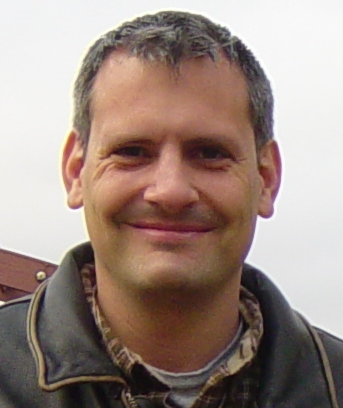
Jeff Bond is a Kansas native and graduate of Yale University. He lives with his wife and two daughters in Michigan, and belongs to the International Thriller Writers Association.
Catch Up With Jeff Bond On:
JeffBondBooks.com
BookBub
Goodreads
Instagram
Twitter
Facebook!
Tour Participants:
Visit these other great hosts on this tour for more great reviews, interviews, guest posts, and giveaways!
Enter To Win!:
This is a rafflecopter giveaway hosted by Partners in Crime Virtual Book Tours for Jeff Bond. There will be 2 winners of one (1) Amazon.com Gift Card each. The giveaway begins on May 1, 2020 and runs through July 2, 2020. Void where prohibited.
Get More Great Reads at Partners In Crime Virtual Book Tours
The Menu
June 6th, 2020
Blessed with a high emotional IQ, Phinn Reed enters the world with the promise of finding his soul mate. With heaven’s memories erased, his romantic quest teaches him that the heart often sees clearer than the eyes—and that not everyone has ordered the same items from The Menu. Evidence that love stories come in many different forms, The Menu is a spiritual journey involving more than just a man and a woman; it is a modern-day tale that reaches far beyond the boundaries of reason.
ISLAND BREEZES
Did I have a menu? I wonder if I would have been as brave as Phinn and chosen everything on the menu. I think I would have probably thought that would be too greedy.
This book will make you think. It will sometimes make you smile and sometimes make you weep.
Steven Manchester has done it again with The Menu! This author always draws me in. I can never read one of his books quickly enough to find out how it’s going to end. Then when I do get to the end, I want the story to just keep going.
***Book provided without charge by the author.***
AMAZON Purchase Link: https://amzn.to/3dE63ox
PRINT copies now available: e-Book available for pre-order, with a June 16th release)

Steven Manchester is the author of the #1 bestsellers Twelve Months, The Rockin’ Chair, Pressed Pennies and Gooseberry Island; the national bestsellers, Ashes, The Changing Season and Three Shoeboxes; the multi-award winning novel, Goodnight Brian; and the beloved holiday podcast drama, The Thursday Night Club. His work has appeared on NBC’s Today Show, CBS’s The Early Show, CNN’s American Morning and BET’s Nightly News. Three of Steven’s short stories were selected “101 Best” for Chicken Soup for the Soul series. He is a multi-produced playwright, as well as the winner of the 2017 Los Angeles Book Festival and the 2018 New York Book Festival. When not spending time with his beautiful wife, Paula, or their children, this Massachusetts author is promoting his works or writing. Visit: www.StevenManchester.com
Cross Shadow
June 3rd, 2020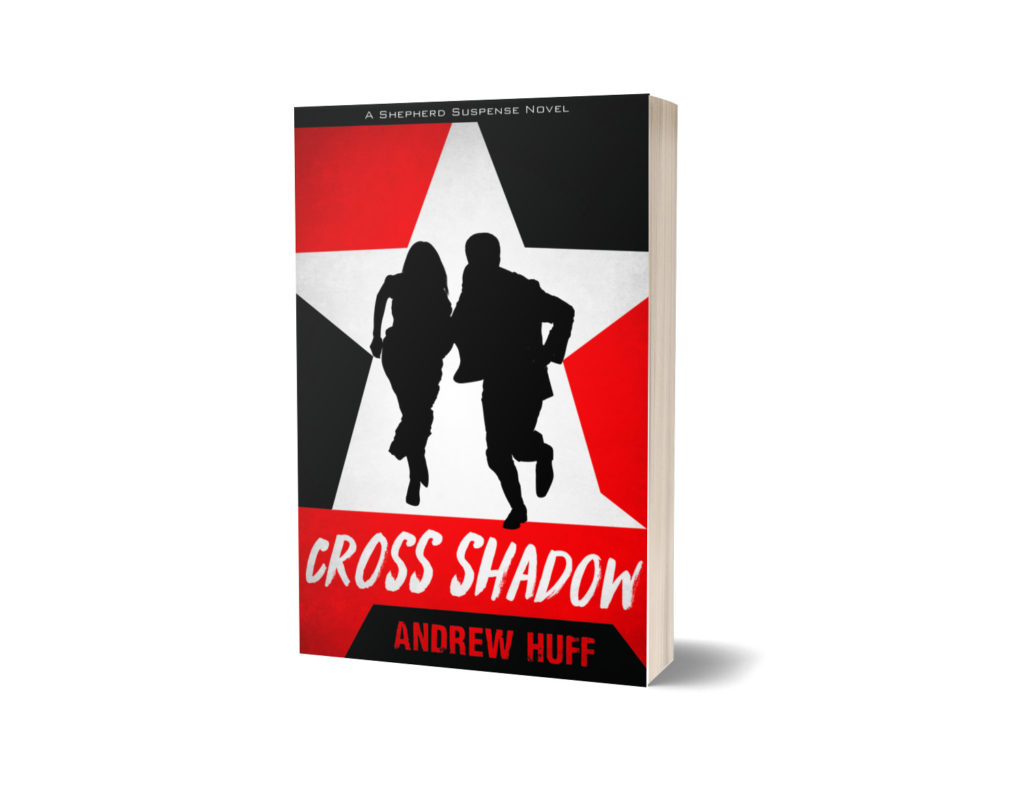
| All journalist Christine Lewis wants is the truth. All pastor John Cross wants is to avoid it. Former CIA agent turned evangelical pastor John Cross is busy caring for the small community of believers he ministers to in Virginia. Journalist Christine Lewis is busy with the demand for her talents from top news agencies in New York City. Neither has any time left for their relationship, which began eight months before when they paired up to prevent the detonation of a chemical bomb in the nation’s capital. But when Christine hears that her stepbrother has been arrested for murder in Texas, they team up again to discover the truth about the crime. Untangling a web of conspiracy, the couple finds themselves in the center of another dangerous situation-and in trouble far deeper than they expected. With an assassin on the loose, a trusted colleague acting as a double agent, and unreliable artificial intelligence connected to mercenaries who have Cross on their hit list, these two may not get out of the Lone Star State alive. |
ISLAND BREEZES
It’s good to once again touch base with John Cross. He’s going through this time of his life with a heavy heart.
Both he and Christine are trapped in lies and, yes, secrets.Can they hold onto their fledgling relationship? Are they willing to put that much effort into it?
But for the present they are in another adventure involving Christine’s stepbrother as they try to save him from a life in prison.
At the end of this book Mr. Huff has a teaser for John Cross’s next adventure in Right Cross. Good news – another Shepherd Suspense novel. The bad news is the fact that we have to wait until 2021 for it.
Thank you, Mr. Huff, for bringing these exciting people into my life.
***Book provided by Audra Jennings PR.***

| Huff spent ten years in local church ministry as a youth pastor and creative arts pastor before pursuing God’s calling into creative storytelling and media production as the product director at Igniter Media, a church media company (ignitermedia.com). He is a two-time finalist in the American Christian Fiction Writers (ACFW) Genesis Contest for unpublished authors (2014, 2017) and also won the best screenplay award at the 2015 48 Hour Film Festival in Richmond, VA. A Cross to Kill and Cross Shadow in the Shepherd Suspense series are his first releases. Huff holds a bachelor of science in religion degree from Liberty University and a master of arts in Christian education from Dallas Theological Seminary. He resides in Plano, TX, with his beautiful wife, Jae, and their two boys. Learn more Andrew Huff and the Shepherd Suspense novels at www.andrewhuffbooks.com. He can also be found on Facebook (@huffwrites), Twitter (@andrewjohnhuff) and Instagram (@andyhuff). |

